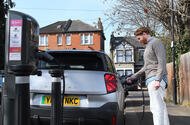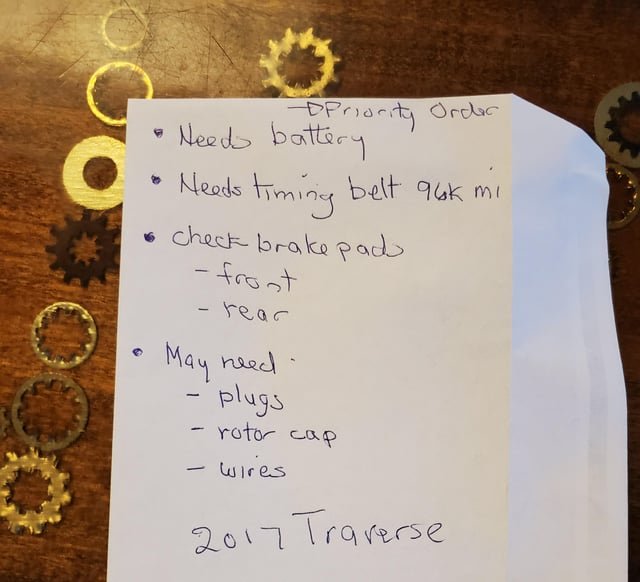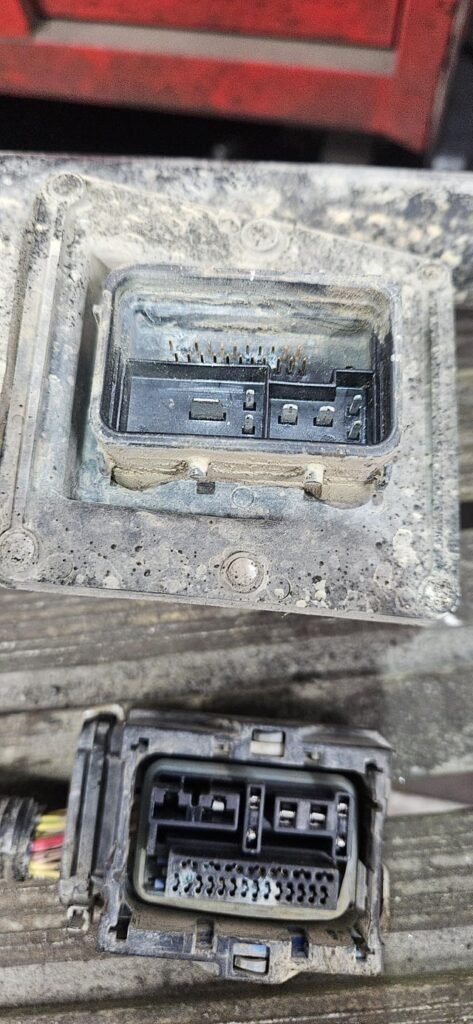The details of EV charging and the cost of it can seem complicated at first, but this guide spells it out clearly
Thinking of switching to an electric car? Finding out how much it will cost you to charge is the first answer you need to find out.
Sadly that answer isn’t simple, because it depends on where and how you charge.
Charging at home is usually much cheaper than using public chargers. But even at home, costs vary depending on your energy tariff and the type of charger you install.
Public chargers add another layer of complexity. Prices change based on the charging speed and provider. Fast and ultra-fast chargers are convenient but come at a premium.
Then there’s VAT to consider. Home charging is taxed at 5% but public charging is hit with a 20% rate.
Charging comparison
Charging Location
Typical Cost per kWh
VAT Rate
Speed
Notes
Home (standard tariff)
27p
5%
3-7kW (slow/fast)
Most cost-effective if charged overnight
Home (EV-friendly tariff)
6p–15p
5%
3-7kW (slow/fast)
Cheapest option, typically off-peak overnight
Public (fast charger)
40p–60p
20%
7–22kW (fast)
More expensive, suitable for short top-ups
Public (rapid/ultra-rapid charger)
60p–85p+
20%
50–350kW (rapid/ultra-rapid)
Fastest but highest cost
How much will it cost to charge my car at home?
The vast majority of electric car drivers charge at home, where it’s not only cheaper to do so but also far more convenient. Even with the recent hikes in electricity prices, you will still be saving cash on every refill compared with a traditional petrol or diesel car.
For example, charging a Kia Niro EV with a 64.8kWh (usable) battery and a claimed 285-mile range at home will cost around £17.50 for a full charge, based on the current capped tariff of 27p (£0.27 x 64.8kWh). This figure assumes you’re charging an empty battery to a little short of 100%, but in reality you’re likely to be charging from around 20% to 80% – the minimum and maximum amounts for best preserving battery cell life.
Some energy providers offer special tariffs for electric car owners, providing even cheaper rates for overnight charging. You might see this advertised as off-peak. For instance, E.on gives seven hours of electricity per night at 6.7p/kWh. If you’re able to complete a full 64.8kWh charge solely on that off-peak rate, it would cost less than £5.
Moreover, if your home has solar panels, some chargers can use this ‘free’ energy to charge your EV, further reducing bills. There are even trials running for bi-directional charging that allows you to ‘sell’ any surplus power from your EV back to the grid.
Home charging for company car drivers is more complex, owing to the need to prove how the energy has been used. However, drivers can claim 7p per mile for business trips in electric vehicles, which is the easiest way to avoid administrative headaches.
Home wallbox costs
It’s possible to use the factory-supplied three-pin plug charger when refilling your EV’s battery cells, but charging times are lengthy and most manufacturers advise this method is for emergency use only.
Prices vary, but you can expect to pay £500-£1500 for a smart home wallbox that will communicate with your phone, allowing you to control it remotely.
If you’re a home owner in a single-unit property and haven’t yet bought an EV, a number of manufacturers are offering a free wallbox and installation when you buy one of their electric models.
Either way, if you’re committed to EV ownership and you have access to a driveway or garage, it’s always best to use a dedicated wall-mounted unit that can charge at up to 7kW, which is more than twice as fast as the three-pin alternative.
There are a number of different manufacturers to choose from, plus a choice of tethered (with a charging cable permanently attached) or untethered (allowing you to choose different sockets and cables for different cars) layouts.
Regardless of which one makes most sense for your EV, you will need a qualified electrician to check your household wiring is up to the task and then to install the box.
In England, renters and flat owners qualify for the government’s charge point grant, worth either £350 or 75% off the cost to buy and install a socket, whichever amount is lower.
Public charging costs
Public charging costs depend on where you charge and what car you have, because there are numerous options.
For kerbside charging, there are four types of public chargers: slow, fast, rapid and ultra-rapid.
As of April 2025, to charge a Vauxhall Corsa Electric with a 50kWh battery from 0-10% will on average cost £12.43 using a slow charger, £25 using a fast charger and £38 using a rapid charger.
Elsewhere, you can find DC rapid chargers at charging hubs and on A-roads and motorways. At these, leading provider Instavolt, for example, charges 85p per kWh on its rapid charger tariff, making it considerably more expensive on a pence-per-mile basis than a petrol car.
If you frequently travel long distances, providers such as BP Pulse offer a subscription service with a monthly fee of £7.85, giving you discounted rates (the brand estimates a 20% saving compared with pay as you go) on many of its 9000 chargers plus free access to a handful of AC units.
You will need a smartphone app to access the cheaper rates (or an RFID card for some of the older units), but once connected, you will be billed at 44p on the AC 7kW charger, 63p per kWh on the rapid AC 43kW/DC 50kW chargers and 69p on the ultra-fast DC 150kW-plus chargers.
It’s also possible to use many of the chargers on a pay-as-you-go basis with a contactless bank card at a rate of 59p per kWh for 7kW AC chargers, 79p per kWh for 50kW and 85p per kWh for the 150kW-plus chargers.
Some hotels and shopping centres offer free charging to customers. The widespread use of smartphone apps for all providers makes it easy to see where the charging points are, how much they cost to use and whether they’re free, so you can easily tap into a provider that suits your needs and budget.
Many car manufacturers offer simplified charging by enabling access to numerous providers under their own charging schemes. For instance, Audi‘s E-tron Charging Service account gives access to nearly 20 different energy firms and 75% of the UK’s public charging points, while new E-tron models come with the choice of £500 worth of free charging or a free Ohme home charger or £500 off the vehicle’s price.
Tesla owners get their own dedicated rapid-charging Supercharger network of more than 1400 chargers plus a number of Destination fast chargers at locations such as hotels. Owners of a Tesla Model S or Tesla Model X registered before 2017 are eligible for free charging, while some owners received 6000 miles of free charging if they bought their cars between 15 December 2022 and 12 January 2023.
Non-Tesla owners can now also use the Supercharger network, and in April 2024 the company reduced its prices for these people and allowed them to take out Tesla membership for £8.99 per month or £90 a year.
With membership, non-Tesla owners pay as much for Supercharger power as Tesla owners. Tariffs change according to location and time of day but they range from 54p to 67p per kWh.
Tesla also charges ‘idle fees’ if you remain parked up once your car has a full battery, to reduce how long it takes for others to get connected. If the Supercharger station is more than 50% full, you will be charged 50p for every minute you’re parked in a fully charged car, rising to £1 if the station is completely full.
How much does motorway charging cost?
You will pay a little more to charge at a motorway service station, largely because most of the chargers there are fast or rapid units. Costs typically range from 60p-85p pkWh.
And remember, there will often be an activation fee to pay ahead. This is refundable, and typically ranges from £1-£40.
Is charging an electric car cheaper than fuelling a petrol or diesel car?
Just as fuel prices vary between fuel stations and are much higher at motorway service stations, so EV charger prices vary widely between locations and providers.
Other variables include whether you’re a member of a provider’s charging scheme and how fast the charger is.
On that point, a fuel pump dispenses petrol or diesel at a fixed speed, whereas chargers range in ‘speeds’ from 3kW to more than 350kW. And then you’ve the fact that you can charge at home and take advantage of much lower tariffs.
It’s charging at home where the savings are greatest. For example, in the case of the Kia Niro EV, charging it at home on the current capped electricity tariff of 27p per kWh, the cost per mile would be around 7p.
To refuel its sibling model, the Kia Niro Hybrid, which has an official combined fuel economy figure of 64.2mpg, at the average pump price for unleaded petrol of £6.79 per gallon it would cost more like 12p – almost twice as much.
Charging becomes more expensive on a per-mile basis when you use public chargers located at hubs on A-roads and at motorway service stations, where you’re paying for speed and convenience. The way to counter this, if it’s offered, is to become a subscriber to take advantage of lower tariffs.






